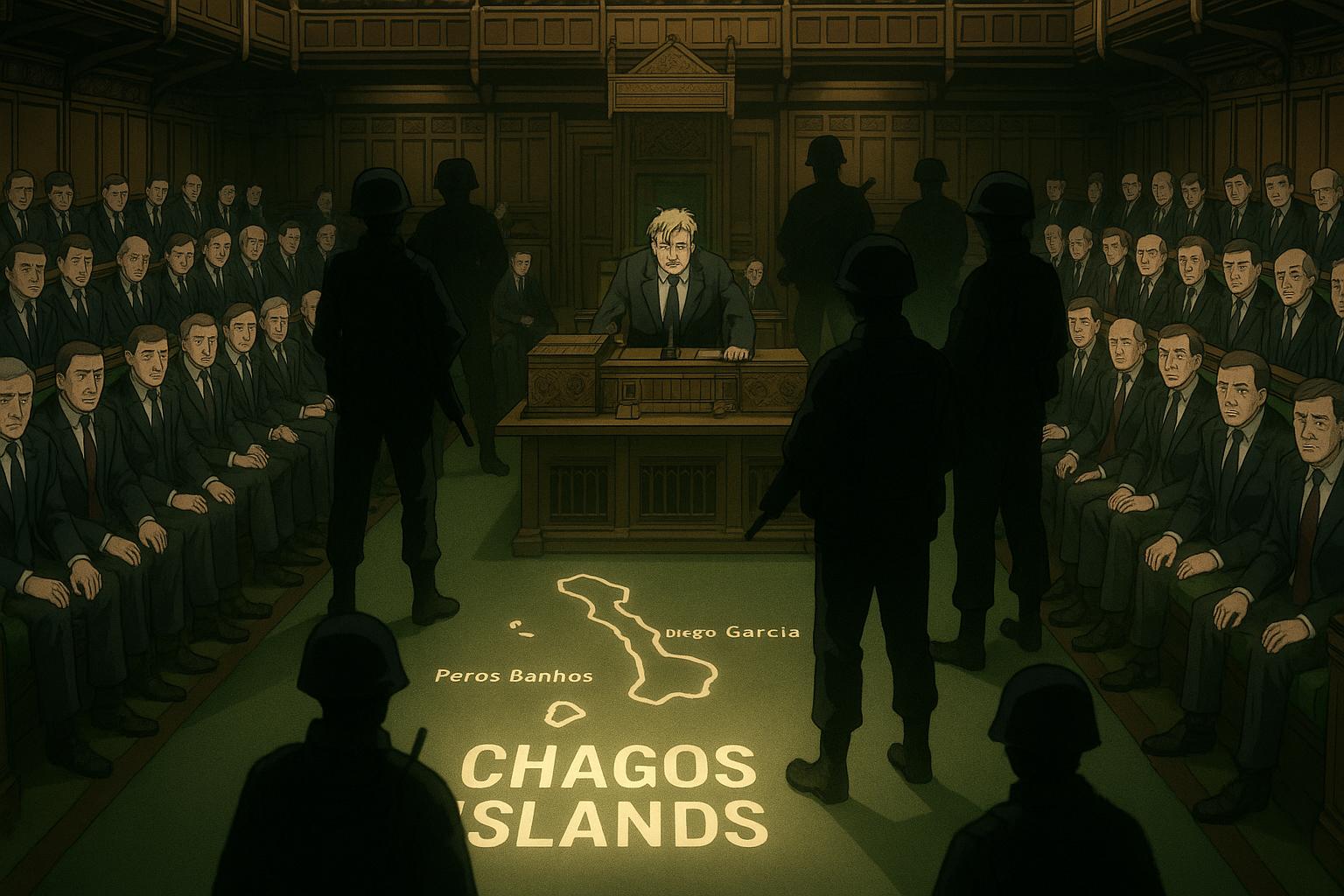The recent agreement concerning the Chagos Islands has sparked a fierce debate in the UK, primarily due to a controversial clause buried within the treaty's fine print. Under this arrangement, the British government will be obligated to inform Mauritius of any military operations originating from the strategically vital base on Diego Garcia. This stipulation has drawn heavy criticism from former defence secretaries and military leaders, who describe it as an alarming infringement on national sovereignty and a reckless weakening of the UK's defence posture.
The £30 billion deal represents a significant capitulation, transferring sovereignty over the Chagos Islands to Mauritius—a territory held by Britain since 1814. The murky history of these islands includes the forcible eviction of nearly 2,000 Chagossians in the 1960s and 1970s to accommodate a US military base, resulting in decades of legal and political struggles. The International Court of Justice deemed the UK's occupation unlawful in 2019, compelling the British government to reassess its position.
Now, under the new treaty, Britain will pay Mauritius an annual fee of £101 million for leasing Diego Garcia while being compelled to consult Mauritius on military activities. Critics such as Sir Grant Shapps and Sir Gavin Williamson warn that this requirement could inadvertently assist adversarial nations like China and Iran by revealing vital military intentions. Williamson stated that this approach not only undermines Britain's strategic autonomy but provides hostile powers with unnecessary insights into UK military operations.
In a climate where international relations are precarious, especially regarding China's expanding influence, such an agreement raises serious concerns. Many perceive the deal as a sign of weakness, fearing that sensitive information disclosed to Mauritius could easily be compromised, jeopardising national security interests both regionally and globally.
Defence Minister Luke Pollard defended the treaty as "good value," claiming that the US would contribute significantly more financially to Diego Garcia's operations. However, this assertion is met with skepticism from various political corners, where leaders argue the treaty represents a strategic retreat for the UK—a disgraceful withdrawal from positions of strength that neglects long-term security needs.
Additionally, the concerns of the Chagossian community linger, as their aspirations for a voice in the negotiations remain largely ignored. Displaced islanders express trepidation about the lack of clarity surrounding their potential resettlement under this new regime, with promised funds for relocation remaining nebulous and poorly enforced. Legal actions initiated by Chagossian activists further highlight the urgent need for a just resolution to their enduring grievances.
As this treaty heads toward ratification, requiring approval from both houses of Parliament, intense scrutiny is anticipated. The UK government must not only deal with the contemporary strategic vulnerabilities posed by the arrangement but also confront the historical injustices it represents. The repercussions of this treaty stretch beyond military strategy, delving into the essential issues of sovereignty, security, and the rights of the displaced Chagossian population. The path forward demands astute navigation of international relations and a resolute commitment to addressing past wrongs—an approach that starkly contrasts with the current government’s trajectory.
Source: Noah Wire Services
